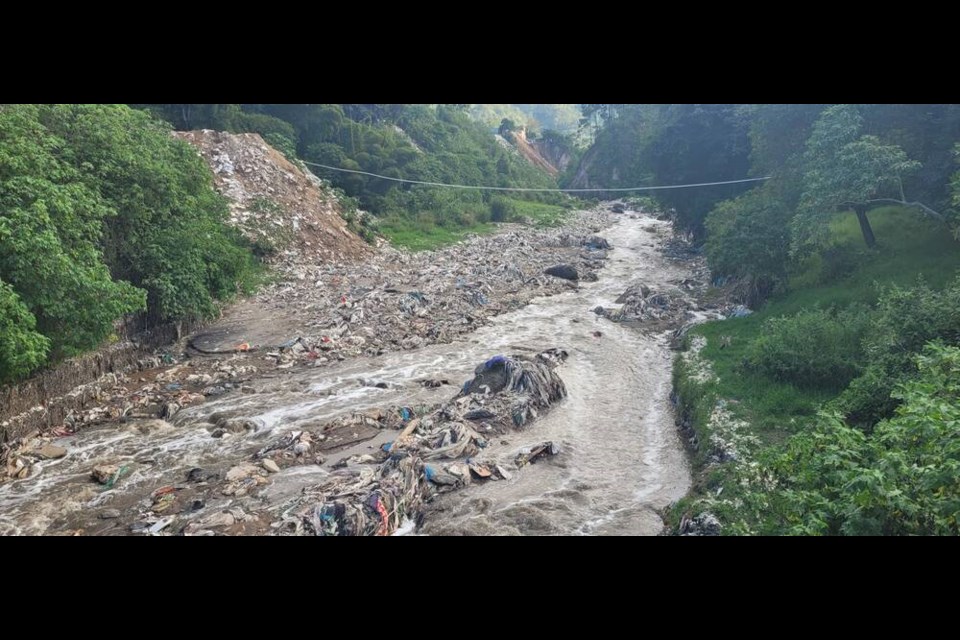A Richmond-based non-profit that creates global plastic pollution response programs will organize a cleanup of one of the world’s most polluted rivers.
Ocean Legacy Foundation (OLF) is partnering with the Guatemalan environmental organization HaciendoECO to have locals and students remove solid waste from the Motagua River and receive education about recycling.
At almost 500 kilometres, the river is the longest in Guatemala, a Central American country that borders Mexico and Belize to its north. The Motagua River is littered with plastic trash and carries at least 8,500 tonnes of waste every year into the Caribbean Sea, according to Ocean Legacy.
“It really depends where we are along the river,” said Chloé Dubois, the co-founder of OLF. “But essentially, we’re going to be marking the river off, so people don’t get too close to the river, and then we’ll essentially be walking in grid patterns over top of the pollution and removing (it).”
From there, she said the pollution will go into bins to be recycled by a company called Biosffera.
Dubois became aware of the extent of the river basin's pollution problem last month after attending the Volcano Innovation Summit, a global conference for business leaders to share their experiences and visions, in Antigua, Guatemala.
From that point, she said OLF started organizing the cleanup, which is when she met with organizers from HaciendoECO to combine forces on the project.
Dubois said the cleanup will begin within the next few months, while HaciendoECO has already started their education program.
The program focuses on the importance of the Motagua River and its ecological role in Guatemala, as well as the waterway’s pollution problem and how it is impacting the river basin, Dubois said.
The project involves working with 45 schools in 15 municipalities, where mainly elementary school students will learn how to sort different plastics and organic waste and about Guatemalan laws that aim to keep these materials out of landfills.
“The schools that we’re partnering with (on) the education (program) are also going to be acting as plastic collection hubs, so students can work with their families to bring back plastics and collect plastics at the schools,” Dubois added.
OLF will also offer free master classes from their EPIC Academy, which is a curriculum series on ocean plastics, in addition to HaciendoECO’s educational program.
Dubois said the cleanup effort has also expanded to an international alliance to get support from the government, non-profits, businesses and industry members to end pollution in the Motagua River. The alliance is made up of more than 25 organizations and agencies.
“Ultimately, the goal with this project is to be able to restore the river basin within the next 10 years,” she said. “So, we are developing within the alliance a 10-year strategy and plan to really bring health back to the river.”
Dubois said they will also start identifying more places in need of cleanups, which people can organize themselves and participate in across the country.
“I think we’re hoping to continue to develop a model that can be used and replicated in different communities and countries,” she added.
For more information, visit www.oceanlegacy.ca.
Got an opinion on this story or any others in Richmond? Email your thoughts or story tips to [email protected].



